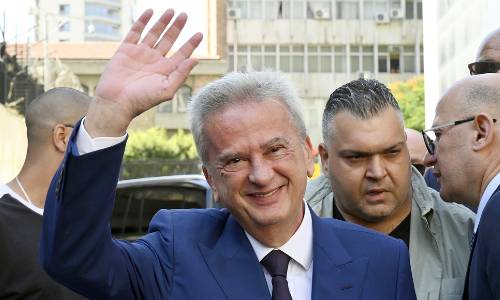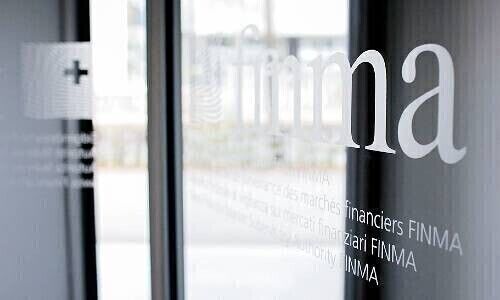An overseas bank in Geneva has violated anti-money laundering regulations and has now been strictly sanctioned by financial regulators. The action by the authority is likely related to the former president of the Lebanese central bank, who is wanted across Europe.
In the long-running affair involving money laundering and embezzlement surrounding a former top central banker in Lebanon, the Swiss Financial Market Supervisory Authority (FINMA) has taken action. As reported by the financial regulator on Monday, it has concluded enforcement proceedings against Banque Audi (Suisse).
Profits confiscated
As a result, it has confiscated profits of 3.9 million Swiss francs from the Geneva institution and imposed an additional capital requirement of 19 million Swiss francs.
This comes after FINMA found that the foreign bank had violated its obligations in anti-money laundering prevention, thus seriously breaching financial market laws. An enforcement proceeding is considered the most severe weapon in the Swiss authority's arsenal.
Professional ban threatened
The bank cooperated in the concluded procedure and took measures to restore proper conditions, it was further stated. During the next two years or until the full implementation of these measures, the bank is now prohibited from establishing new relationships with politically exposed persons and business clients with high risks, the oversight also decreed.
Furthermore, individuals in several key positions were replaced, and resources in compliance were significantly increased. The departing bankers apparently faced even a professional ban, as suggested by the statement.
Proceedings initiated in 2022
The publicly reprimanded Banque Audi (Suisse) belongs to a Lebanese banking group. As the financial watchdog had already announced in February 2023, it was investigating around twelve banks in Switzerland for suspected customer relationships in the Lebanon complex surrounding Riad Salameh (pictured below), the longtime former president of the Lebanese central bank.
The oversight also initiated enforcement proceedings against two institutions. The outcome of the second enforcement proceedings is not yet known. According to press reports, FINMA also scrutinized the private banks Julius Bär and HSBC Switzerland.
As further revealed in the Monday announcement, FINMA had already visited Banque Audi during an on-site inspection in 2021 and examined the customer relationship with politically exposed persons from several countries. It found serious deficiencies in anti-money laundering prevention. This, in turn, prompted the authority to initiate enforcement proceedings the following year.

(Bild: Keystone)
Warning from internal audit
The findings of this were now made public. As part of the inspection, FINMA routinely requested all reports from the internal audit, it is said. The bank's internal audit had pointed out deficiencies in anti-money laundering prevention in specific relationships and demanded measures. However, this specific report was not initially mentioned to FINMA and was not provided to it.
In addition to this «serious violation» of the obligation to provide information, the authorities further found that the bank had insufficiently clarified the origin of assets in risky customer relationships. For example, a payment from a politically exposed person was received into the account of a high-ranking Lebanese official. This amount was subsequently transferred. Although the bank could not verify the purpose of these transactions, it refrained from reporting to the anti-money laundering reporting office.
Federal Prosecutor's Office requested legal assistance
In other cases of customer relationships with politically exposed persons from other countries, there were press articles about possibly unlawfully obtained assets of these individuals. The bank did not sufficiently investigate these suspicions and could not dispel them. Thus, the bank seriously violated anti-money laundering regulations, emphasized FINMA.
In the Monday announcement, Salameh's name is not mentioned once; yet, the former currency chief is under investigation across Europe. Germany and France are searching for the Lebanese national with an arrest warrant. In Switzerland, the Federal Prosecutor's Office initiated an investigation in 2021 following a suspicion report from a Geneva bank and filed a legal assistance request to Lebanon. Investigations against Salameh are also ongoing in Luxembourg and Liechtenstein.
Millions diverted invested in luxury properties?
He and his brother are suspected of embezzling more than $300 million from the Lebanese central bank and transferring it to Swiss bank accounts through shell companies based in the British Virgin Islands. With the funds, the two brothers are alleged to have bought luxurious properties in several European countries. Lebanon is currently considered a failed state, and the public finance of the Middle Eastern country has collapsed.



































